The fourth round of the World Cup in Goa delivered a spectacle few expected: a day of relentless tiebreak drama, stunning upsets, and electric moments that reshaped the tournament landscape. Rapid, blitz and Armageddon formats combined to produce a marathon of tension and skill, where preparation met nerves and the margins for error vanished. By the day’s end, the field had been halved and the path to the title had become simultaneously clearer and more unpredictable.
What began as routine tie-break paperwork quickly transformed into a showcase of psychological resilience. Several pre-tournament favourites bowed out, while underdogs seized the moment, proving that in fast time controls the balance of power can shift in an instant. Spectators, commentators and players all witnessed how stamina, creativity and time-pressure technique turned into decisive weapons.
When the dust settled, the round-of-sixteen lineup featured a compelling blend of veteran strategists and fearless young challengers. The outcomes reminded everyone that chess at this level is as much about mental tenacity and rapid decision-making as it is about deep opening preparation. Goa had produced a day of giant-killing that will be discussed long after the clocks stop.
Early Drama and the Tiebreak Format
The afternoon opened under a cloud of anticipation as eleven matches returned for tiebreaks across accelerated time controls. Organizers set the tone: two 15-minute games with a 10-second increment, followed if necessary by 10/10 rapid games and blitz or Armageddon deciders. This layered structure put a premium on adaptability — players needed to switch gears instantly from deep, classical thought to instinct-driven speed chess.
Remarkably, eight of the eleven matches were decided in that very first rapid segment, underscoring how quickly advantage can translate into victory when the clock bites. Every miss, every inaccuracy, and every shaky time scramble had amplified consequences. For many competitors, the tiebreaks were a test of character as much as chess skill.
Shock Results: Grebnev Tops a Top Seed
One of the biggest shocks came when GM Aleksey Grebnev (2611) eliminated elite favourite GM Maxime Vachier-Lagrave (2737). Grebnev’s composed play and opportunistic approach in the opening rapid game set the tone, and he managed to steer the second into a pragmatic draw to clinch the tie. The result reiterated that even the most seasoned blitz masters can falter under time and pressure.
Grebnev’s performance was a reminder of the deep bench of talent in modern chess — players who have honed their craft at elite opens and online arenas can challenge the established hierarchy when the conditions align. The upset also sent a ripple of excitement through the hall, as pundits recalibrated their expectations for the remaining rounds.
Shankland’s Calm Mastery and Rapport’s Exit
GM Sam Shankland produced a composed and methodical performance to eliminate GM Richard Rapport, marking another surprise of the session. Shankland’s disciplined choice of solid defensive structures in rapid play neutralised Rapport’s creative impulses, and he converted opportunities with clinical endgame technique. The American’s approach exemplified how measured strategy can prevail even when facing imaginative opponents.
Rapport’s elimination highlighted the brutal fairness of tiebreak format: a few slips in tactical complications or a moment of time trouble can overturn even the most confident campaigns. For viewers, the interchange underscored that in the World Cup’s compressed time windows, consistency often beats flashiness.
Harikrishna’s Strategic Breakthrough
Pentala Harikrishna’s advancement was another pivotal moment as he outplayed Nils Grandelius in the rapid section. Harikrishna’s strategic temperament and endgame sense allowed him to capitalise on the psychological edge that comes from an early win, then consolidate to secure the match. His win served notice that experience and positional clarity remain invaluable in chaotic tiebreak scenarios.
Across his pairing, Harikrishna demonstrated the art of patient play — pressuring weaknesses, maintaining tension, and converting small advantages. It was a performance that balanced cool-headed calculation with opportunistic timing, qualities that will serve him well in the tougher rounds ahead.
Young Guns and the German Surge
A notable storyline from the day was the emergence of younger talents who converted momentum into qualification. Frederik Svane joined Alexander Donchenko in confirming the strength of the new German cohort, with Svane’s resolute play in his rapid match sealing his place in the top sixteen. Their progress highlighted the growing depth at the international level and the steady rise of youthful grandmasters.
Svane’s win, along with other young qualifiers, painted a picture of generational shift — players who have sharpened their skills across global opens, online events and rigorous junior circuits are ready to challenge established elites on the biggest stages.
Dubov’s Calculated Tiebreak Strategy
GM Daniil Dubov produced a masterclass in tiebreak strategy by eliminating GM Praggnanandhaa with a carefully timed approach: quiet, risk-controlled play with White to force an even first game, then tactical precision to exploit errors in the second. Dubov’s plan revealed a high-level understanding of match psychology — sometimes a safe draw is the best way to take the initiative in the decisive game.
The match highlighted the razor-thin margins at this stage: a single misjudgement under time pressure — or a miscalculated simplification — can end a top contender’s campaign. Dubov’s victory reaffirmed why flexible thinking and time-management are critical in knockout events.
Erigaisi and the Indian Charge
Arjun Erigaisi continued his impressive run, displaying precise calculation and steely nerves en route to victory in his rapid tiebreaks. His disciplined technique in both opening preparation and pressure moments reinforced his stature as one of the tournament’s most dangerous contenders. With top form and high rating, Erigaisi enters the next round as a genuine title aspirant.
Among the Indian contingent, Erigaisi’s progress injected optimism and strategic depth into the field — a reminder that national talent pools are producing world-class players capable of challenging for the top prizes.
Cup Veterans and Emerging Names Advance
Veterans such as Gabriel Sargissian showed their enduring quality by navigating tense endgames and time scrambles to advance, while rising stars like Andrey Esipenko upset higher-rated opponents in shorter time controls. The mix of experience and audacity created an unpredictable, electrifying atmosphere that made each board a potential headline.
Esipenko’s qualification over a strong opponent showcased the volatility of the shorter formats: even brief endgame inaccuracies under time pressure can be ruthlessly punished. These moments underlined why knockout chess is often as dramatic off the board as it is on it.
Blitz, Armageddon and the Final Drama
When several matches marched into blitz and Armageddon, tension amplified to almost unbearable levels. Wei Yi and Samuel Sevian were among those who prevailed in the high-stakes deciders, using rapid-fire instincts and nerves honed across countless blitz battles. Armageddon’s unique pressure — with draw odds and unbalanced time — produced theatrical finishes and emotional post-game reactions.
The final sequence of the day felt cinematic: players trading blows, recoveries, and sudden collapses as hours of competition culminated in single moments that decided careers and dreams. For fans in the hall and viewers worldwide, the drama was proof positive that chess’s emotional highs are as potent as any other sport’s.
What Lies Ahead: A Wide-Open Race
With sixteen players remaining, the tournament enters an electrifying phase. The day’s giant-killing upsets have opened the draw, creating new pathways for both seasoned grandmasters and hungry newcomers. Every remaining match will carry enhanced significance, as Candidates spots and World Cup glory hang in the balance.
As play moves forward, preparation will remain crucial — but so will psychological resilience and the ability to execute under pressure. Goa has delivered a stirring lesson: in knockout chess, the unexpected is always possible, and on any day, a new hero can emerge.
Also Read: Bumrah & Kuldeep Destroy South Africa in Post-Lunch Carnage


Disclaimer
Possible11 is a sports news and analysis platform designed purely for entertainment and educational purposes. All match previews, player insights, and team analyses are based on publicly available information and expert opinions. We do not promote or support betting, gambling, or real-money gaming in any form. Users are encouraged to enjoy our content responsibly and use it for informational purposes only.

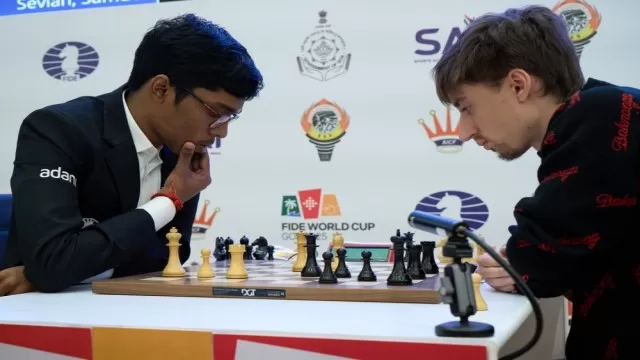
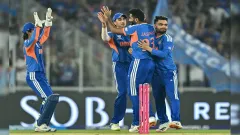
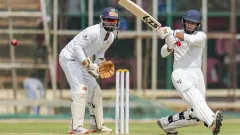
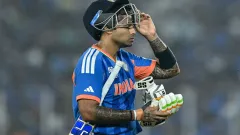

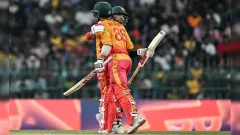
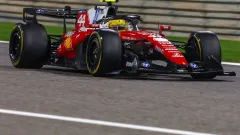

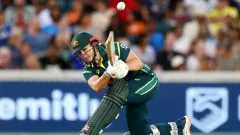


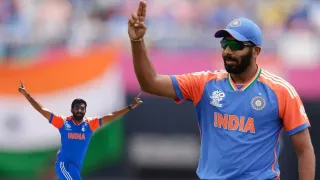




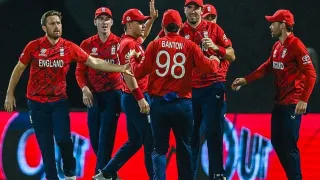
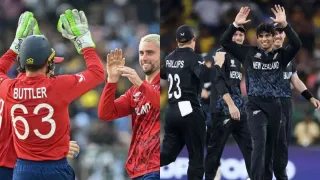
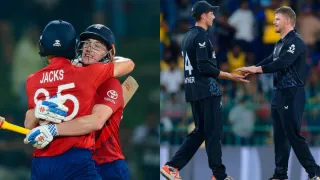

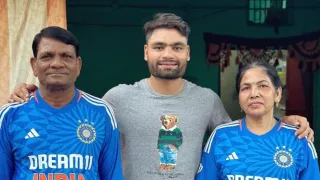
Give Your Feedback